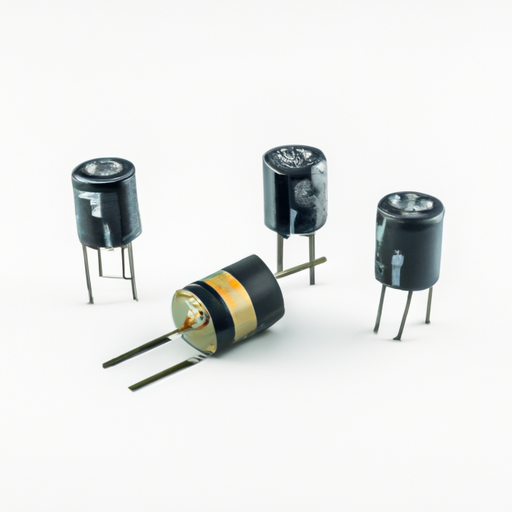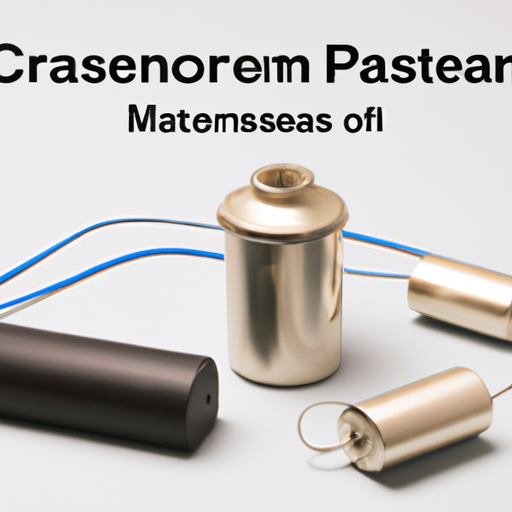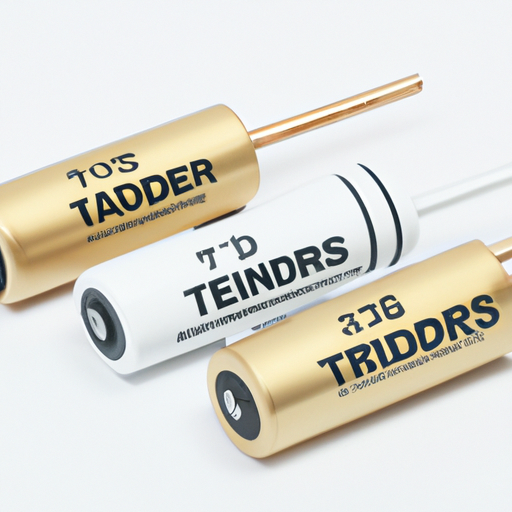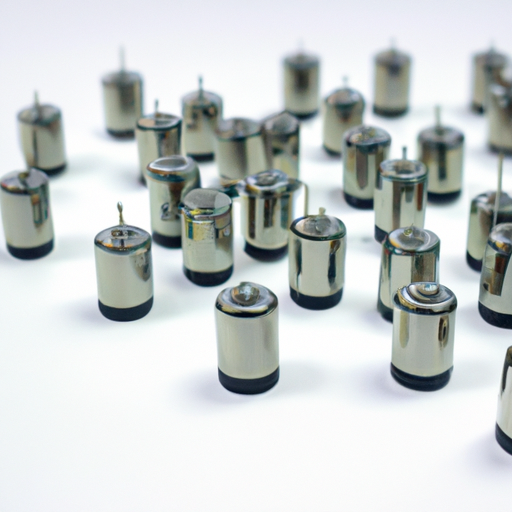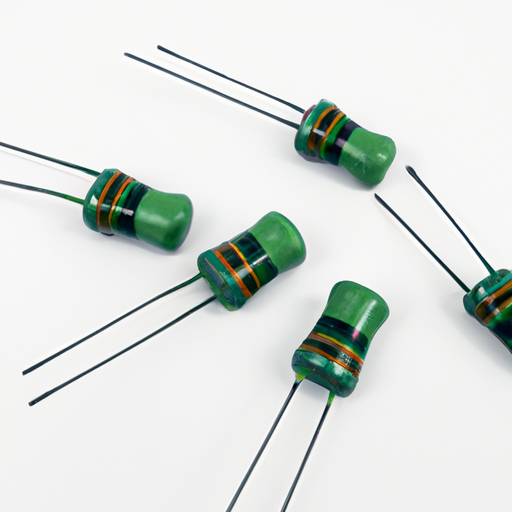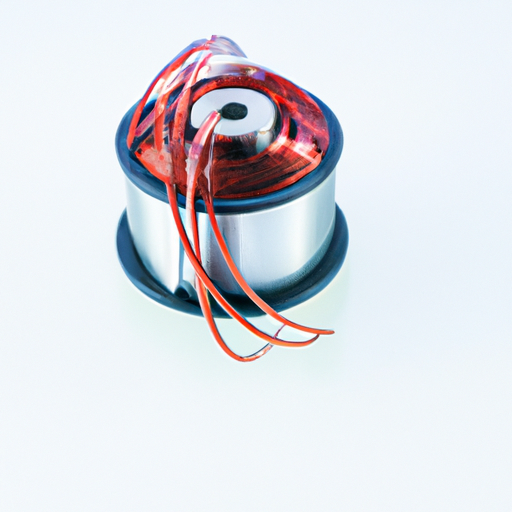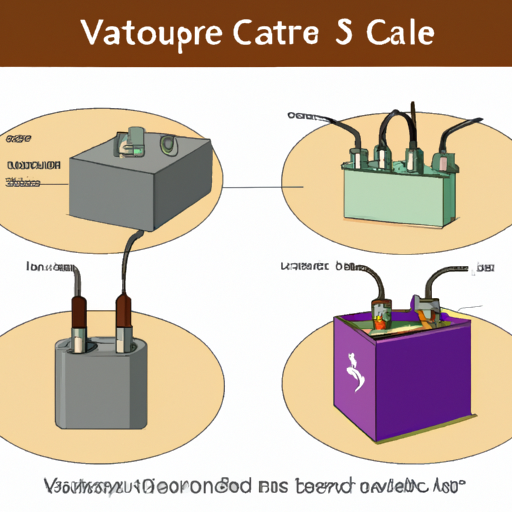Important Product Categories of Compensation Capacitors
I. Introduction
In the realm of electrical engineering, compensation capacitors play a pivotal role in enhancing the efficiency and stability of electrical systems. These components are essential for managing power quality, improving voltage levels, and ensuring that electrical systems operate smoothly. This article delves into the important product categories of compensation capacitors, exploring their functions, applications, and the criteria for selecting the right type for specific needs.
II. Understanding Compensation Capacitors
A. Function and Purpose
Compensation capacitors serve several critical functions in electrical systems:
1. **Power Factor Correction**: One of the primary roles of compensation capacitors is to improve the power factor of electrical systems. A poor power factor can lead to increased energy costs and reduced system efficiency. By providing reactive power, compensation capacitors help to balance the load and reduce the demand on the electrical supply.
2. **Voltage Regulation**: Compensation capacitors help maintain voltage levels within acceptable limits, ensuring that electrical equipment operates efficiently. This is particularly important in industrial settings where voltage fluctuations can lead to equipment malfunctions.
3. **Harmonic Filtering**: Many electrical systems generate harmonics, which can distort the voltage and current waveforms. Compensation capacitors can filter out these harmonics, improving the overall power quality and protecting sensitive equipment.
B. Types of Compensation Capacitors
Compensation capacitors can be categorized into three main types:
1. **Fixed Capacitors**: These capacitors have a constant capacitance value and are typically used in applications where the reactive power requirement does not change significantly.
2. **Automatic Capacitors**: These capacitors can adjust their capacitance based on the load conditions, making them suitable for dynamic environments where power demand fluctuates.
3. **Synchronous Capacitors**: These are rotating machines that provide reactive power and can be synchronized with the electrical grid, offering both voltage support and power factor correction.
III. Key Product Categories of Compensation Capacitors
A. Fixed Compensation Capacitors
1. **Description and Applications**: Fixed compensation capacitors are widely used in various applications, including industrial plants, commercial buildings, and power distribution systems. They are often installed in capacitor banks to provide a stable source of reactive power.
2. **Advantages and Limitations**: The main advantage of fixed capacitors is their simplicity and reliability. However, they lack the flexibility to adjust to varying load conditions, which can lead to over- or under-compensation.
3. **Common Materials Used**: Fixed capacitors are typically made from materials such as polypropylene, polyester, and aluminum, which offer good dielectric properties and durability.
B. Automatic Compensation Capacitors
1. **Description and Applications**: Automatic compensation capacitors are designed to adjust their capacitance in real-time based on the load conditions. They are commonly used in industrial applications where power demand fluctuates, such as manufacturing facilities and large commercial buildings.
2. **Advantages and Limitations**: The primary advantage of automatic capacitors is their ability to optimize power factor and voltage levels dynamically. However, they can be more complex and expensive to install and maintain compared to fixed capacitors.
3. **Control Systems and Technology**: Automatic compensation systems often utilize advanced control technologies, such as microcontrollers and sensors, to monitor load conditions and adjust capacitance accordingly.
C. Synchronous Compensation Capacitors
1. **Description and Applications**: Synchronous capacitors are rotating machines that provide reactive power support to the electrical grid. They are often used in large power plants and transmission systems to enhance voltage stability and improve power factor.
2. **Advantages and Limitations**: Synchronous capacitors offer high reliability and can provide both reactive power and voltage support. However, they require more maintenance and can be more expensive to install compared to other types of compensation capacitors.
3. **Integration with Other Systems**: Synchronous capacitors can be integrated with other power system components, such as transformers and generators, to enhance overall system performance.
IV. Specialized Compensation Capacitors
A. Harmonic Filter Capacitors
1. **Description and Applications**: Harmonic filter capacitors are specifically designed to mitigate harmonic distortion in electrical systems. They are commonly used in industrial settings where non-linear loads, such as variable frequency drives and rectifiers, generate harmonics.
2. **Importance in Industrial Settings**: By filtering out harmonics, these capacitors help improve power quality, reduce equipment overheating, and extend the lifespan of electrical components.
B. Power Quality Capacitors
1. **Description and Applications**: Power quality capacitors are used to enhance the overall quality of electrical power in a system. They help regulate voltage levels, reduce flicker, and improve the reliability of power supply.
2. **Role in Enhancing System Efficiency**: By improving power quality, these capacitors contribute to increased system efficiency, reduced energy costs, and enhanced performance of electrical equipment.
C. Motor Start Capacitors
1. **Description and Applications**: Motor start capacitors provide the necessary boost of energy to start electric motors, particularly in applications such as HVAC systems, pumps, and compressors.
2. **Importance in Motor Performance**: These capacitors are crucial for ensuring that motors start efficiently and operate smoothly, preventing damage and prolonging their lifespan.
V. Selection Criteria for Compensation Capacitors
When selecting compensation capacitors, several criteria should be considered:
A. Voltage Rating
The voltage rating of the capacitor must match or exceed the operating voltage of the system to ensure safe and reliable operation.
B. Capacitance Value
The capacitance value should be chosen based on the specific reactive power requirements of the application, taking into account factors such as load characteristics and power factor goals.
C. Frequency Response
Capacitors should be selected based on their frequency response characteristics to ensure optimal performance in the intended application.
D. Environmental Considerations
Factors such as temperature, humidity, and exposure to chemicals should be considered when selecting capacitors to ensure durability and reliability.
E. Compliance with Standards
It is essential to ensure that the selected capacitors comply with relevant industry standards and regulations to guarantee safety and performance.
VI. Applications of Compensation Capacitors
A. Industrial Applications
1. **Manufacturing Facilities**: Compensation capacitors are widely used in manufacturing plants to improve power factor, enhance voltage stability, and reduce energy costs.
2. **Power Plants**: In power generation facilities, these capacitors help maintain voltage levels and improve overall system efficiency.
B. Commercial Applications
1. **Office Buildings**: Compensation capacitors are used in commercial buildings to optimize energy consumption and improve power quality.
2. **Retail Spaces**: Retail environments benefit from compensation capacitors by reducing energy costs and enhancing the performance of lighting and HVAC systems.
C. Residential Applications
1. **Home Appliances**: Compensation capacitors are found in various home appliances, helping to improve energy efficiency and performance.
2. **Renewable Energy Systems**: In renewable energy applications, such as solar and wind systems, compensation capacitors help manage power quality and enhance system reliability.
VII. Future Trends in Compensation Capacitors
A. Technological Advancements
The development of advanced materials and technologies is leading to more efficient and reliable compensation capacitors, enhancing their performance and lifespan.
B. Increasing Demand for Energy Efficiency
As energy efficiency becomes a priority for industries and consumers alike, the demand for compensation capacitors is expected to grow, driving innovation and development in this field.
C. Integration with Smart Grid Technologies
The integration of compensation capacitors with smart grid technologies will enable more efficient management of electrical systems, improving power quality and reliability.
VIII. Conclusion
In summary, compensation capacitors are essential components in modern electrical systems, playing a crucial role in power factor correction, voltage regulation, and harmonic filtering. Understanding the different product categories, including fixed, automatic, and synchronous capacitors, as well as specialized types like harmonic filter and motor start capacitors, is vital for selecting the right solution for specific applications. As technology continues to advance and the demand for energy efficiency grows, compensation capacitors will remain integral to the performance and reliability of electrical systems.
IX. References
- Academic Journals
- Industry Reports
- Manufacturer Specifications and Guidelines
This comprehensive overview of compensation capacitors highlights their importance in various applications and provides insights into their selection and future trends, ensuring that readers are well-informed about these critical components in electrical engineering.

